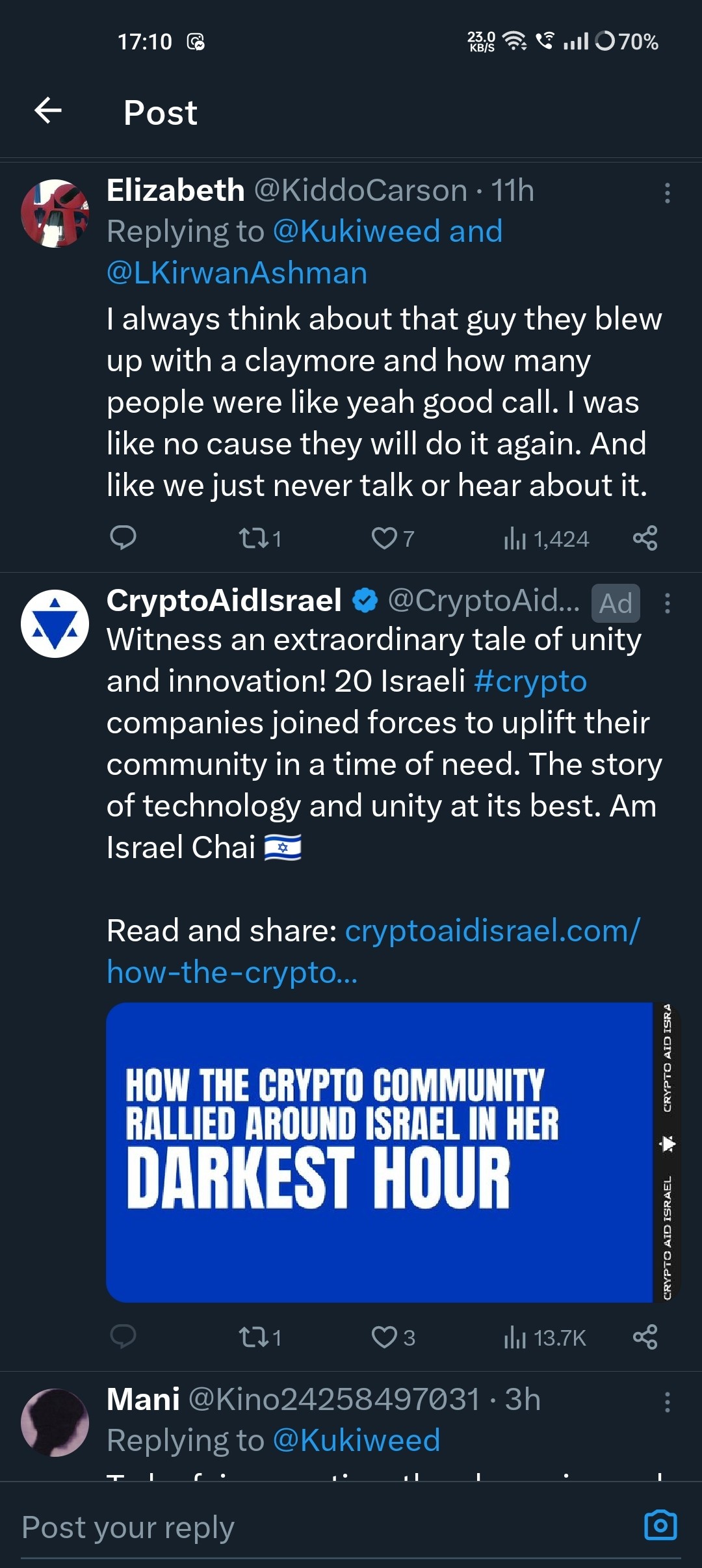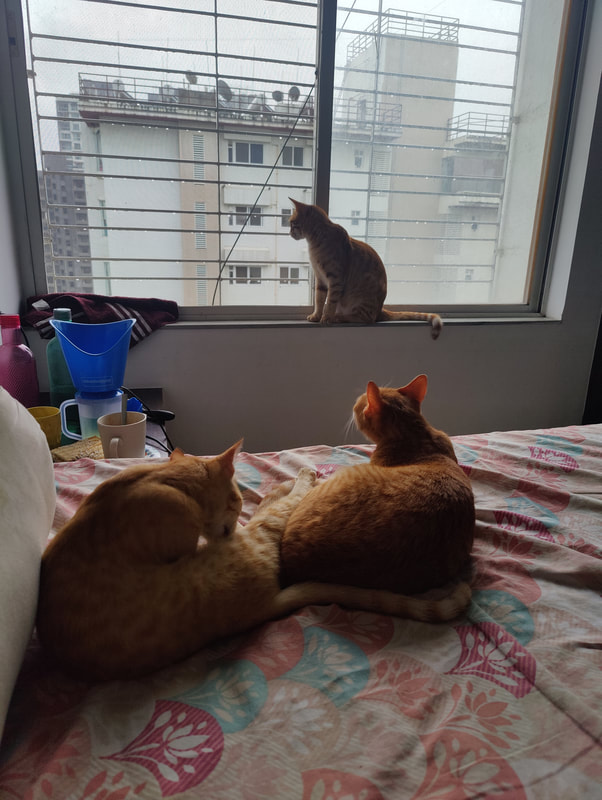|
by Luv Mehta I've been posting far less, basically everywhere, because Social Media Is A Peesoshit. Or maybe it's just the internet nowadays? Since the 2010s, basically my school-to-college years, I used to post quite a lot online. I posted opinions on every political situation, fights in college, comic book movies and basically every other college-guy-brained topic with opinions that aged like milk. I used to shitpost, too, because shitposters hate being seen but need to be known, so I put up a thick wall of irony and made funny-ha-ha posts circled around a strong opinion. There was Facebook, where I used to post so much that I keep getting On That Day flashback notifications every day about some shitpost or 500-word-long status I made back in 2015. There was Instagram, where I've got story highlights reminding me I used to genuinely brainstorm and think what to make each day. There was Tumblr, then this blog - I'm back by the way! - which I kept trying to post an article on every week, then every month, now every year(?). There was Reddit, where I usually used to post on r/patientgamer subreddit everytime I finished a game. There was Twitter too, and I ended up browsing Twitter basically every single day, but I never really posted much on it. Very vibrant community, too impenetrable for me. Nowadays, though, these all feel like old memories, half-remembered daydreams of crumbling web architecture and dying communities. I haven't posted to Facebook in years, the only reason I go there anymore is for the niche interest groups that still sustain its dying corpse. Facebook decided to push more avenues for revenue, a retinue of marketing ingenues that pushed pages to advertise themselves or get lost in the ballyhoo of the algorithm, where your field of view was obstructed by ads for underwear, coffee and barbecue. Who knows what my friends are up to? I open Facebook and have to browse through a mixture of 9 suggested pages and group posts before I'm able to see someone on my friend list. Mark Zuckerberg made a social network, then he rounded up all the people in that network and put a dozen ads in between each connection, then he tried convincing all the pages they needed to pivot-to-video, then used their content while destroying their streams of revenue. Worth the genocide in Myanmar? Evidently. I haven't posted much to Instagram in years. I do post statuses there once in a while, but it's mainly bizarre memes I feel like posting out-of-context to confuse my followers a few times a week. I do feel it's a more palatable social network for me nowadays, but that mainly because
I haven't posted anything to Tumblr in years. I do like that they have clearly demarcated tabs to differentiate between people you follow and algorithm-pushed content Tumblr thinks you'd be interested in - something other social media networks are increasingly refusing to let users opt-out of - but the parent companies that keep buying and destroying it never seem to have understood its appeal. The disastrous adult-content ban keeps much of its old diverse and horny userbase away to this day (existing users can attest to the ban softening and those old creators still being afraid to return) and the new management has recently admitted its own confused pivot-to-video though something called "Tumblr Live" (for livestreaming, one of the strangest pivots Tumblr could have made) was a contractual obligation. These days? All the blogs I browse have like 50 posts combined in a day, enough for 15 dedicated minutes of scrolling to get rid of the FOMO. Maybe that's the future of how we treat social media. Reddit's weird. There are subreddits I like for a while, then they seem to post about the same niche topics and niche internal drama and circlejerk themselves off a cliff, then they spawn circlejerk subreddits that make fun of the community and ends up being more self-aware, then they circlejerk themselves off a cliff too. With the US-backed Israeli genocide of Palestinians, some of the default subreddits have revealed such an intense full-throttled racism that even other default subreddits have raised some alarm. The company's CEO also decided to take inspiration from Elon Musk and start to make ridiculous changes to the product, trying to force everyone to browse Reddit on their (horrible, poorly-designed, notification-forcing) default app, which has discouraged my own usage of it to a large extent. And then there's Twitter, currently named X. The immense downfall of the platform driven by a megalomaniacal billionaire, hell-bent on proving to everyone that he never had any intelligence or talent, is well documented, but it's hard to overstate how much this feels like a true death-knell for the internet as we once knew it. Twitter shaped news, culture, even movies (to the point that modern movies often feel inspired by Twitter discourse some terminally online LA nepo baby saw), and it felt like an equalizing force where celebs and normal people alike all had a common platform and form of expression. It's not all gone, but the checkmark going from a mark of importance to a mark of support for rentierism definitely did damage. Even till recently, while I was pretty addicted to the site and spent close to 5 hours of screentime on it every day, I ditched it in disgust recently after seeing an Israeli crypto firm take advantage of the ethnic cleansing to hawk more snake oil. All the above have one thing in common, and it's something Cory Doctorrow, controviersially, coined as enshittification. Essentially, a web platform makes itself really enticing to users by giving them a great experience, then it makes itself really enticing to advertisers by giving them great reach at great prices (and making the experience worse for the users), and finally, it starts charging advertisers more money for less reach, hoping to trap both sides in a gradually worsening platform while siphoning off more money from either end. This mainly works if there are enough users that have naturally formed a large network of their own and find the platform indispensable for maintaining it, so you can make things worse for them while ensuring they can never bear to leave you. Sounds very familiar, so why would it be controversial? Detractors argue (in posts I can't find right now, goddamn do search engines suck nowadays - oh wait, that's relevant to this case, and that's because) a corporate-owned social media platform will always obey the rules of capital and seek to expand profit margins every year, and capital always responds to diminishing returns by demanding new forms of rent-seeking. We can't buy movies or music these days because physical media is on the decline and we're expected to pay monthly for streaming platforms - unless you have expensive BluRay players or vinyl, desktops are on the decline, laptops refuse to bundle CD players nowadays, and you don't get normal CDs or DVDs very easily anymore. So how could we expect profit-seeking platforms to act any different, even if they're an internet-commons that would actively worsen in quality and reputation if companies would try to wring more money out of their users? So is social media a peesoshit, or is it capitalism? As Karl Marx said, "idk". It's been a year since a bunch of Twitter users migrated to Mastodon, a rival platform. The interesting thing about Mastodon, and the ActivityPub protocol it's based on, is that anyone with resources can essentially host their own version of Mastodon and make any changes to its source code if they'd like, and all the different websites running Mastodon can intercommunicate and essentially form a networked commons - a series of interlinked smaller town halls instead of a large village square. It's difficult to control its growth and direction if no one person or organization has control over all its users, so in theory, that solves the profit motive issue. I've spun off my own Mastodon server - Mast Insaan - and I've been having a good time so far. Definitely noisier than Tumblr, no algorithms being pushed on me, and a good way to cut fascist chuds and their networks off from ours. And it's not just Mastodon either - there are multiple other platforms based on ActivityPub that aim to be a replacement for multiple social media sites - Facebook has Friendica, Instagram has PixelFed, YouTube has PeerTube, Reddit has Lemmy, Goodreads has Bookwym, and so on. The killer feature here, interestingly, is that you can share and follow any profile from within any of these, to within any of these - take this post, for example, which is a Bookwyrm post I've shared from my Mastodon account. This whole thing, all these sites interlinking together, is called the Fediverse. So is this the future? I don't know. The interoperability is exciting, and Tumblr and Meta have shown interest in connecting to the Fediverse (Wordpress already has). But like all open-source alternatives, these sites are similar but not quite the same, their UI/UX is slightly worse, and most of the people you'll find at first are insufferable European FOSS nerds. Plus, is a distributed commons efficient or great? Divorced from the profit-motive, large-scale centralization does have a lot of advantages - it's more resource-efficient, professional administration and moderation is far more effective, and it's far easier for everyone to come to a single place and find each other. Having multiple platforms interlinked to form a network-of-networks can also lead to the whole thing feeling fragmented, with laypeople finding it difficult to figure out which community to join, and communities in general feeling much more insular. I think that's the ultimate debate between federalism and centralism - do you prefer having multiple smaller communities with lesser resources all run by their own governing bodies, or do you trust a smaller group of people to govern the masses with more resources? I don't know yet, and that goes into politics, a subject I've never talked about. In conclusion, social media is dying, and from the ashes it will be reborn. But what will emerge is unknowable and completely beyond me. Here's a picture of my cats.
Follow us on Facebook and Instagram to be notified whenever we release new articles.
Do you use an RSS reader? Even better!
0 Comments
Leave a Reply. |
Categories
All
Archives
December 2022
|


 RSS Feed
RSS Feed
